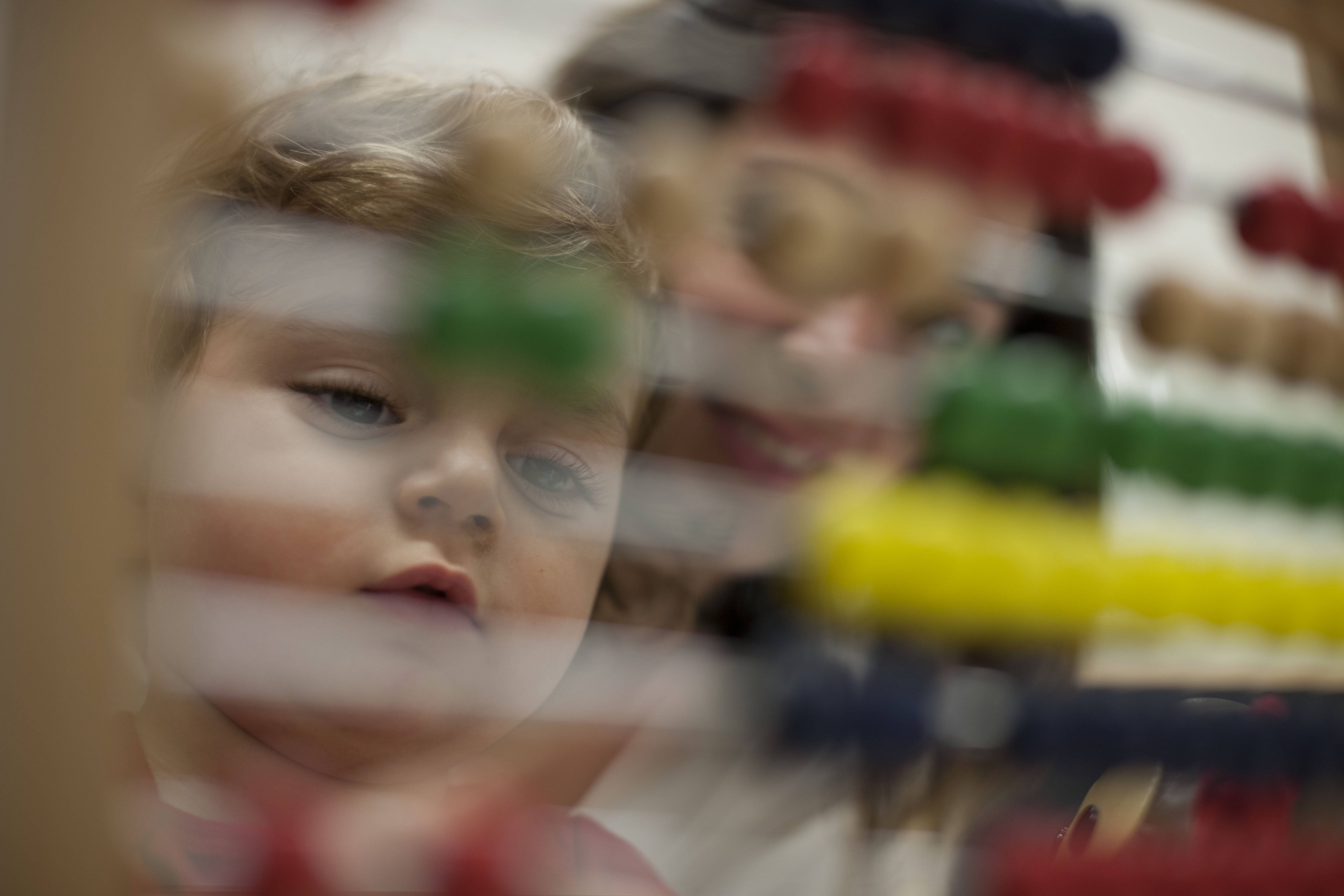Key points:
- Babies are like little scientists, actively exploring the world to understand how it works.
- Cognitive development involves abstract thinking, memory, problem-solving, and attention.
- Object permanence and increased attention span are key milestones in a baby’s cognitive development.
- Encouraging safe exploration helps build a child’s understanding of textures, shapes, and how the world works.
In this series, we’ll explain each of Kinedu’s four areas of development. Keep reading to find out what you can expect from your baby’s cognitive development in the first years!
Babies are a lot like little scientists –actively testing the world to figure out how it works. A baby’s cognition –or the group of mental processes that include abstract thinking, memory, problem-solving, and attention– helps create this understanding of the world.
What does cognitive development look like?
One of the first big leaps for your baby will be understanding that they can make things happen. This is tied to the concept of cause and effect –which, again, is pretty important when it comes to making sense of how the world works. Later on, your child will also be able to follow simple instructions and recognize you as someone who helps them, so maybe they will bring you a toy and ask you to make it work, or, if they struggle with something, they will look at you asking for help. Imitation is also something your little one will start doing during this period, being an important part of their learning too!
By the time your baby’s first birthday comes around, they’ll have a pretty good grasp on the fact that people and things still exist even when they can’t see them. You’ll notice this breakthrough in object permanence when your baby starts to find toys that were hidden from sight. This will make Peek-a-boo a little outdated, but hide-and-seek will become so much more fun. Here’s one of our favorite activities –let us know what you think!
Around this same period, your baby’s attention span will increase a good amount and they might start remembering things or faces. Although your child will still move around a lot, they might stay interested in a toy for a little bit longer than a few months before. You can gradually expand the toys and objects they’re familiar with to keep them interested, but they will probably find these objects without any help as they explore around the house. This independent play is your child’s way of learning about the world and it is important for their cognitive development.
To keep your little one safe, baby-proof your home and make sure there’s nothing dangerous they could find and take into their mouth. Babies are curious about everyday objects and how they work, so your child will be exploring and grabbing everything, pushing buttons, or opening things. Once you make sure your baby is safe, encourage exploration so they can build new ideas about textures, shapes, gravity, and how the world works!
In the first few years, your child will have an insatiable curiosity and will be looking for new things to conquer. They’ll show an increased ability to process information, remember, and conceptualize –which are all part of their cognitive development and brain architecture.








